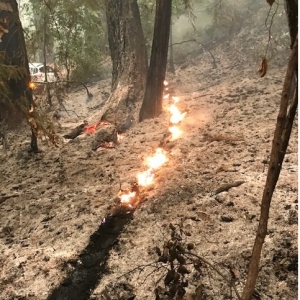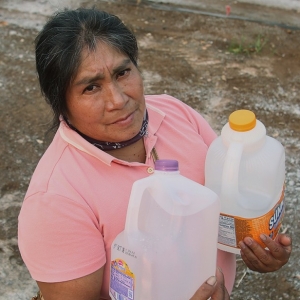The Stream, September 15, 2020: Extreme Weather Events Could Be Causing High Suicide Rates in India
The Global Rundown
A new study has linked skyrocketing suicide rates in rural India to extreme weather events. Nornickel in Russia says about 10 percent of fuel remains in rivers after a spill earlier this year. Five tropical storms are simultaneously moving through the Atlantic. Torrential rainfall causes a mine to collapse in the Democratic Republic of Congo. An environmental group out of Atlanta, Georgia disagrees with a judge’s decision to dismiss their case over sewage spillage in the city.
“Judge Grimberg’s ruling effectively removes the protections of 1972 Federal Clean Water Act from two-thirds of DeKalb County that is not covered under the consent decree and ALL of the South River. It is like turning back the environmental protection 50 years.” – The South River Watershed Alliance, in a statement on their Facebook page. The environmental group said they believe a federal judge was wrong to dismiss its lawsuit over raw sewage released in suburban Atlanta. They are considering whether they will appeal the decision, the group said, while U.S. District Judge Steven Grimberg said the alliance didn’t have the legal standing to sue under the federal Clean Water Act. AP
Latest WaterNews from Circle of Blue
Western Wildfires Damage, Contaminate Drinking Water Systems – As they tear through forests and developed areas, fires in California, Oregon and Washington have destroyed water infrastructure and released chemical contaminants.
HotSpots H2O: As Tensions Rise in the Southern Caucasus, Water Shortages Continue – Tensions are rising again between Armenia and Azerbaijan after an escalation at the border killed at least 16 service members in July. The decades-long conflict has left water supply networks in disrepair and exacerbated water shortages for civilians in both countries.
What’s Up With Water — September 14, 2020 – This week’s episode looks at evidence suggesting waste pits in Alberta, Canada are contaminating groundwater and two lawsuits against the U.S. Environmental Protection Agency for allegedly failing to enforce a landmark agreement to clean up the Chesapeake Bay.
By The Numbers
90 percent The amount of fuel Russia’s Norilsk Nickel (Nornickel) said it collected from rivers after its Arctic fuel spill earlier this year. The spill occurred on May 29 after a fuel tank lost pressure and released 21,000 tons of diesel into rivers and subsoil near the city of Norilsk in Siberia. Some environmental campaigners have said they doubt Nornickel’s assertion that it has been able to recover so much of the leaked diesel and earlier this week, Russia’s state environment watchdog filed a lawsuit against a power business owned by Nornickel to claim $2 billion for environmental damage caused by the leak. Reuters
5 The number of tropical cyclones moving through the Atlantic, marking the first time in 50 years there have been that many moving simultaneously. As of Monday, a tropical wave was over the Gulf of Mexico, while Hurricane Sally was getting closer to making landfall in the Gulf Coast. Meanwhile, Hurricane Paulette and Tropical Storms Rene, Teddy and Vicky are out further in the Atlantic Ocean. Flooding from rainfall is a major threat with Hurricane Sally because of its slow motion, while strong winds and torrential rain continue to impact Bermuda in the wake of Hurricane Paulette. ABC News
Science, Studies, and Reports
Extreme weather events like drought and flooding has been linked to higher suicide rates among rural farmers in India, a new study has suggested. The international study found that the percentage of deaths due to suicide increased by 18.7 percent during extremely wet cropping seasons and by 3.6 percent during extremely dry cropping seasons. This is the first study of its kind that the researchers know of, the authors of the study said. Hindustan Times
In context: Water Scarcity Causes Cauvery Delta Anguish
On the Radar
A gold mine in the Democratic Republic of Congo collapsed on Friday amid torrential rain, leaving about 50 people feared to be dead. Local officials say most of those feared to be dead are young people and have called for two days of mourning. Accidents are common in the DR Congo’s mining industry, which has poor safety standards. DR Congo has rich reserves of minerals like cobalt, diamonds, copper and gold, but its people remain among the poorest in the world following years of conflict and mismanagement. BBC
Jane is a Communications Associate for Circle of Blue. She writes The Stream and has covered domestic and international water issues for Circle of Blue. She is a recent graduate of Grand Valley State University, where she studied Multimedia Journalism and Women, Gender and Sexuality Studies. During her time at Grand Valley, she was the host of the Community Service Learning Center podcast Be the Change. Currently based in Grand Rapids, Michigan, Jane enjoys listening to music, reading and spending time outdoors.







Leave a Reply
Want to join the discussion?Feel free to contribute!